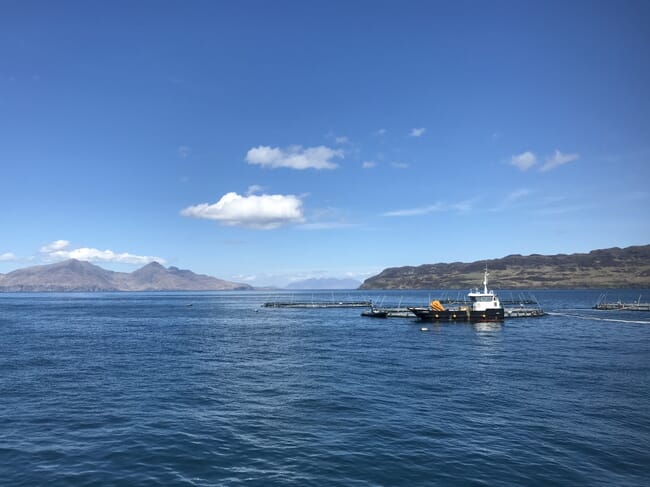“This relocation initiative aligns our growth plans with the Scottish Parliament’s Rural Economy & Connectivity Committee’s (RECC) recent recommendations to sustainably grow our fish production levels over the next few years by expanding into new high-energy farming areas in more appropriate open water locations,” stated Stephen MacIntyre, head of environmental management at Mowi Scotland.

© Clara McGhee
The company’s relocation plan will increase employment in remote locations whilst retaining the services of its experienced and dedicated staff. Employees currently working at Loch Ewe have been consulted with and may continue their employment at other new or expanded locations. The Loch Ewe location is set to retire at the end of the current fish cycle, at the end of 2020.
The new farm near the Isle of Scalpay is located in an open water environment. The farm will be unique to Scotland – forming part of an integrated multi-trophic growing project involving multiple species of sea life which will examine ways to improve the productivity and environmental sustainability of marine aquaculture practices. There are plans to also link the farm location to the proposed visitor experience centre at Kyleakin, providing a first-hand view of an operating farm for interested tourists and Skye locals.
The Scalpay farm is set to start production in spring 2020.
Ben Hadfield, Mowi Scotland’s managing director, is pleased to see Scotland’s regulatory system support the company’s initiative, stating, “Success for this relocation initiative will be a net increase in production, a net increase in export value for Scotland and a net reduction in our environmental footprint at sensitive locations. Scotland’s potential exit from the EU is challenging for us, and as a major and growing employer in the country, we will do our utmost to retain and develop our experienced staff.”



